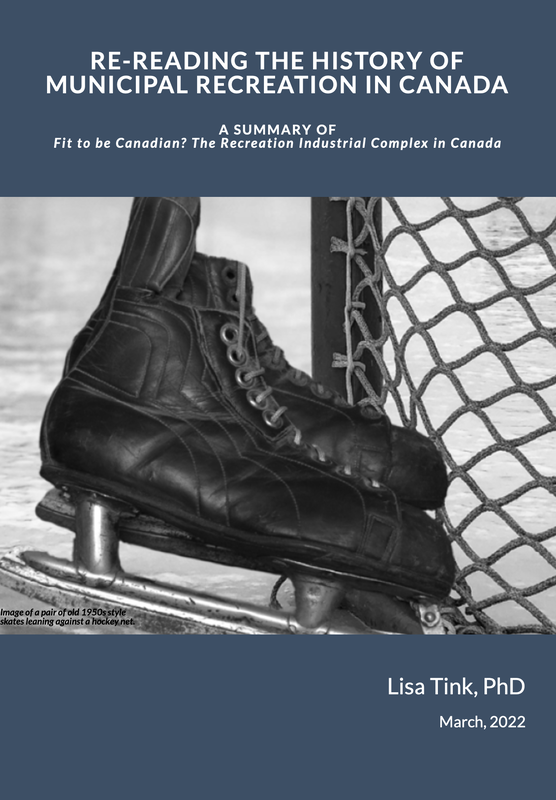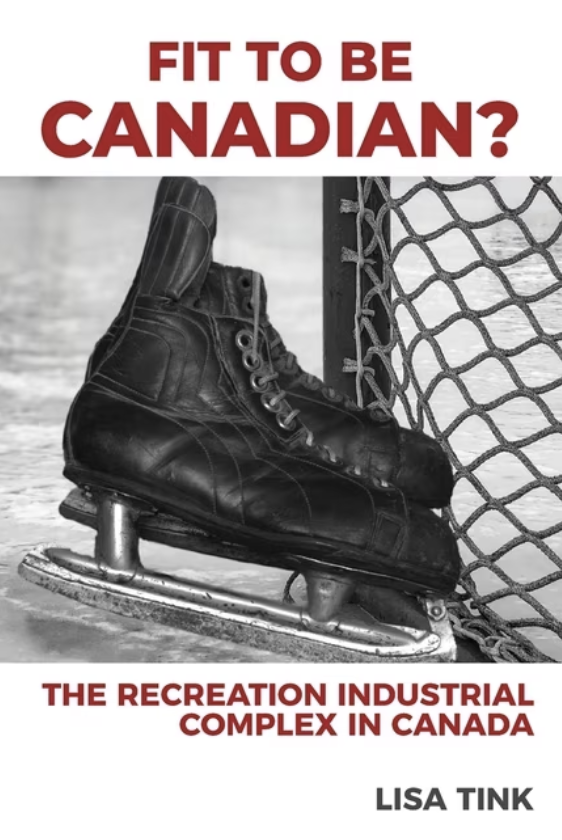FIT TO BE CANADIAN?
THE RECREATION INDUSTRIAL COMPLEX IN CANADA
In recent years, recreation scholars and professionals began calling for a return to municipal recreation's historical roots as a "public good." Blaming neoliberal ideology for the current pay-per-use model, these calls for a more inclusive recreation system have suggested the sector's "business-like" practices should be of concern because they are in direct opposition to the historic mandate of "equal opportunity."
A central assumption underlying these calls for the recreation profession to return to its "historical roots" is that municipal recreation services, until the late 1980s and early 1990s, were available to all members of society. This narrative is, however, a romanticized account of recreation's history.
In this book, Lisa Tink challenges the often-repeated narrative of a more inclusive and equitable era in recreation's past. Tracing some of the conditions that have given rise to what she has termed the recreation industrial complex, Tink's research demonstrates how recreation has, by design, served the interests of white, heterosexual, able-bodied, middle- to upper-class Canadians.
By exposing the ways particular bodies came to be centered in a recreation context, the purpose of this important piece of recreation scholarship is to demonstrate how historical inclusions and exclusions (whether intentional or not) were in fact part of a broader biopolitical project intended to sustain white supremacy, with the ultimate goal of encouraging critical dialogues about what is inherently problematic, difficult, and dangerous in the discourses, practices, and policies that govern our contemporary recreation systems.
A central assumption underlying these calls for the recreation profession to return to its "historical roots" is that municipal recreation services, until the late 1980s and early 1990s, were available to all members of society. This narrative is, however, a romanticized account of recreation's history.
In this book, Lisa Tink challenges the often-repeated narrative of a more inclusive and equitable era in recreation's past. Tracing some of the conditions that have given rise to what she has termed the recreation industrial complex, Tink's research demonstrates how recreation has, by design, served the interests of white, heterosexual, able-bodied, middle- to upper-class Canadians.
By exposing the ways particular bodies came to be centered in a recreation context, the purpose of this important piece of recreation scholarship is to demonstrate how historical inclusions and exclusions (whether intentional or not) were in fact part of a broader biopolitical project intended to sustain white supremacy, with the ultimate goal of encouraging critical dialogues about what is inherently problematic, difficult, and dangerous in the discourses, practices, and policies that govern our contemporary recreation systems.
Practitioner Summary
Book
This research was supported by SSHRC's Doctoral Fellowship, Sport Canada, Mitacs, and the Canadian Training Network for Parks and Recreation.


